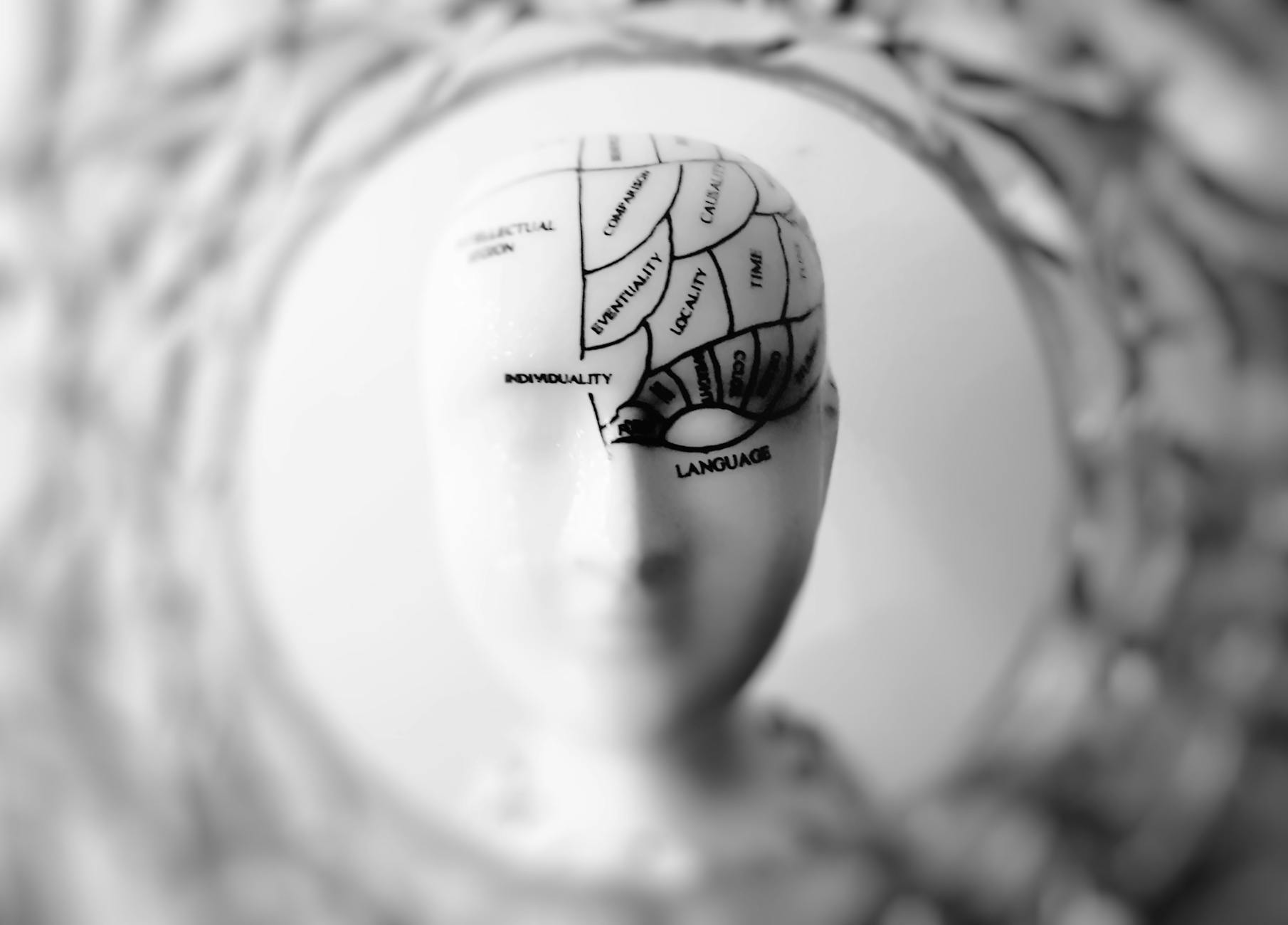Having a sharp memory has always been a valuable skill. It isn’t just for students cramming for exams; it’s a life skill that helps us stay sharp, and enhance our lives, both mentally and emotionally. Whether you want to retain more information for work, studies, or just personal growth, a good memory can change your life. Here’s a quick guide to help you improve your memory with simple and effective strategies.
1. Stay Organized
Create a To-Do List: Write down your tasks for the day or week and list them in order of priority. Working with a list will help you stay focused and ensure that you only focus on important tasks, which is crucial to improve your memory. Additionally, you should cross off completed tasks so that you gain a sense of accomplishment too!
Use Calendars and Apps: Leverage digital tools like calendars (Google Calendar), task management apps (Trello or Todoist), or reminder apps (Google Tasks) to keep track of deadlines, appointments, and tasks. These tools help you stay organized by sending alerts and allowing you to easily visualize and manage your schedule in one place.

Reduce Clutter: Set aside a few minutes each day or week to tidy up your workspace or home. Get rid of unnecessary items to maintain a clean, organized environment and prevent clutter from building up. You should also do this for your digital workspace and remove any unused apps on your mobile or laptop.
2. Stop Passive Learning
Engage with the material: Instead of passively reading or listening, ask yourself questions about the topic. Make connections between what you’re learning and what you already know, or explain the content to someone else. This will keep your brain engaged and force you to think deeper. This is also helpful when you’re trying to improve your memory for studying.
Use multiple senses: Engage all your senses when you’re trying to learn new information. Use visuals, audio, and even movement as part of your learning process to boost how your store information in your head. You create more memory pathways when you involve as many senses as you can in your learning process.
Summarize in your own words: When you learn something new, write or say it back in your own words. This increases the strength of neural connections related to memory. Moreover, when you summarize something in your own words, try to use a simpler language so that it is easier to recall later.

Take this quick quiz to find out your learning style! Answer these 3 simple questions to see if you’re more of a Visual Learner or an Auditory Learner. Your score will help you discover how you learn best and improve your memory.
1. How do you prefer to take in new information?
a) I like to see things like diagrams, charts, or written notes.
b) I prefer listening to explanations or discussions.
2. What helps you remember something better?
a) Seeing it written down or watching a video.
b) Hearing someone explain it, or talking about it.
3. When trying to understand something complex, what works best for you?
a) Drawing it out or reading a step-by-step guide.
b) Discussing it with someone or listening to an audio guide.
Scoring:
Mixed Answers: You might have a Balanced Learning Style!
You can use both visual and auditory cues effectively. You might prefer different methods for different types of information, and that flexibility is a great advantage in adapting to different learning situations.
Mostly A’s: You’re a Visual Learner!
You learn best through images, diagrams, and written information. Seeing things laid out in front of you helps your brain absorb and retain information. You also like to watch videos, look at charts, or create visual notes to help you understand and remember things.
Mostly B’s: You’re an Auditory Learner!
You excel when you hear information. Whether it’s through listening to explanations, participating in discussions, or talking things through, you rely on your auditory senses to process and retain information. Podcasts, conversations, and verbal instructions work well for you.
3. Get Enough Sleep
Process new memories: Try to get at least 7-9 hours of uninterrupted sleep each night. Most people underestimate the power of a good night’s sleep, but the benefits of sleep are far too valuable to ignore when you’re trying to improve your memory. During deep sleep, your brain consolidates and organizes memories, making them easier to recall later.

Maintain a sleep routine: Develop a healthy sleep routine so that you go to bed and wake up at the same time every day. This will also help regulate your body’s internal clock, ensuring your brain and your body get enough time to recover.
Avoid late-night distractions: Stay away from screens or caffeine close to bedtime, and try to create a restful environment. Doing this will improve sleep quality and enhance your brain’s ability to organize memories effectively.
3. Exercise Regularly
Boost brain function: Regular physical activity increases blood flow to the brain, providing it with more oxygen and nutrients. This improves cognitive functions, including memory. Moreover, exercising stimulates the production of chemicals like endorphins which support memory retention and help you improve your memory recall.

Balance body and mind: Activities like yoga, brisk walking, jogging and cycling are excellent choices, because they combine physical and mental engagement, helping your memory in the long term. Working out at the gym wouldn’t hurt either.
4. Use Memory Techniques
Mnemonics: Using simple tricks like acronyms or rhymes can make it easier to remember lists or complicated information. An acronym is when you take the first letter of each word in a list and make a new word out of it. For example, in mathematics, “PEMDAS” helps you remember the order of operations: Parentheses, Exponents, Multiplication, Division, Addition, and Subtraction. Rhymes work the same way by creating a catchy phrase that sticks in your mind. These tricks are great because they make hard-to-remember information much simpler and easier to recall.

Visualization: Create vivid mental images related to the information you want to remember. The more unusual or colorful the image, the better. Add as much detail as you can including shape, size, weight, and sound if possible.
Chunking: Break large pieces of information into smaller, manageable chunks. For example, to memorize a phone number, group the digits (e.g., 555-123-2090). You can even try grouping the everyday items you need to have in your pockets before leaving the house. This might include your house keys, car keys, mobile phone, and a wallet or purse.
5. Eat Brain-Boosting Foods
Omega-3 rich foods: A diet rich in Omega-3 can work wonders when you’re trying to improve your memory power. Eat a lot of salmon, walnuts, and flaxseed to boost your memory. Omega-3s have healthy fats which are essential for brain health and can improve your ability to remember things.
Antioxidant-rich fruits: Blueberries, oranges, and strawberries are packed with antioxidants that protect your brain from stress and improve memory function. Blueberries are also called superfoods because they are loaded with nutrients and help lower blood pressure, prevent heart disease, and aid in exercise recovery.

Stay hydrated: Dehydration can lead to cognitive fog and forgetfulness, so drink plenty of water throughout the day. Set an alarm on your phone so that you’re reminded at different times of the day to drink water. Men should aim for about 15.5 cups (3.7 liters) of water a day and women should try to drink about 11.5 cups (2.7 liters) of water a day.
6. Practice Mindfulness and Meditation
Organize your thoughts: Mindfulness meditation is a very powerful tool that helps you focus on the present, making it easier to store and recall memories without distraction. It is available to us at all times, and does not need any special equipment or training to practice.

Improve concentration: Training your brain to focus for longer periods of time can help you concentrate better. Just like exercising your muscles makes them stronger, regular meditation can strengthen your attention span. When you can focus longer, it’s easier to get things done without getting distracted.
Lower stress: High stress levels result in increased cortisol, a stress hormone that can have a negative impact on memory. We tend to lose focus and struggle with recalling information when we’re stressed. Mindfulness techniques lower cortisol and enhance our self-awareness, which helps improve memory.
7. Stay Mentally Active
Learn something new: Starting a new hobby or learning a new skill, like playing an instrument or learning a new language, is a great way to challenge your brain. These activities force your brain to work in new ways, which helps improve your memory. Moreover, when you try something different, you’re using parts of your brain that might not get much exercise otherwise. This helps keep your brain active and strong, making it easier to remember things in the future.
Challenge your brain: The brain is like a muscle and it becomes stronger with exercise. Set aside some time everyday to do puzzles, brain teasers, or play strategy games. These activities exercise your brain and help create new neural pathways. Playing video games involves all of these and is a fun way to improve your memory skills.

Switch up your routine: Routines can sometimes become boring, so try changing small things in your daily life, like taking a new route to work or listening to a different genre of music while working out. This can add an element of challenge and enhance cognitive flexibility and memory.
8. Build Strong Social Connections
Engage in meaningful conversations: Talking and interacting with other people is a great way to improve your memory. When you engage in deep conversations, you need to remember finer details like what someone just said or what you talked about earlier. This helps your brain practice recalling information and keeping track of different parts of a discussion. Additionally, this helps you practice recalling details and keeping track of ongoing discussions, which is a great way to improve your memory.

Learn from others: When you talk about different topics, ask questions, or share stories with others, your brain is exposed to new ideas and perspectives. This helps your brain process information in new ways, making it easier to remember things later. So, whether you’re chatting with friends about a subject you just learned or telling a story, you’re helping your brain remember things more effectively.
Join group activities: Participating in group activities, whether it’s for sports, games, or learning something new, is a great way to keep your brain active and your memory sharp. Engaging in these activities keeps your brain stimulated by trying new things and interacting with others. This kind of mental exercise helps improve your memory and also keeps your mind fresh.
9. Stop Multitasking
Focus on one task at a time: Multitasking is a myth, and while it may provide the illusion that you’re doing more, it’s long term effects are quite damaging. Multitasking divides your attention, making it harder to focus 100% on anything. This makes remembering things difficult because important details are lost while multitasking. Moreover, focusing on one thing allows your brain to store information more efficiently.

Set priorities: If you have long list of tasks, write them down and work on them one at a time, starting with the urgent tasks first. This will help you concentrate fully on the task at hand and you’re more likely to retain information. In addition, you’ll be able to prevent burnout and avoid feeling overwhelmed when you have a list of tasks in order of priority.
Minimize distractions: In today’s digital era, we’re surrounded by distractions. Whether it’s a phone notification, or social media, it is fairly easy to lose valuable productive hours to scrolling. However, if you create a workspace that’s free of distractions like loud noises, frequent notifications, and set aside time for using social media, you can focus better and remember more.
10. Repeat and Review
Space out your learning: It is a common malpractice to try and cram as much information as possible in our heads at the last moment. This method usually overloads our brains with information and it does not allow our brains to rest. However, this method is not very efficient for memory retention. Rather than cramming information all at once, study in spaced intervals. This technique is called spaced repetition and it helps your brain solidify the material.

Test yourself regularly: Quizzing yourself is a great way to remember things better. When you quiz yourself, your brain has to work to pull up the information from memory. This process makes it easier to remember the material in the future. Moreover, this method is more effective than just reading or reviewing the information without testing yourself.
Review in different formats: Switch up how you review the information that you’re trying to learn. Try to learn by reading, writing, watching videos, or discussing the topic. Using different formats will stimulate your brain in new ways, reinforcing memory and improving your ability to recall it later.
Final Thoughts:
Improving your memory doesn’t require drastic changes. Small, consistent habits—whether it’s getting better sleep, moving your body, or practicing mindfulness—can make a huge difference. By combining a few of these strategies, you’ll not only improve your memory power but also enhance your overall cognitive well-being. And remember, it’s okay to forget sometimes; our brains are busy places! However, with these tips, you’ll be able to control more of what stays stored in there.
